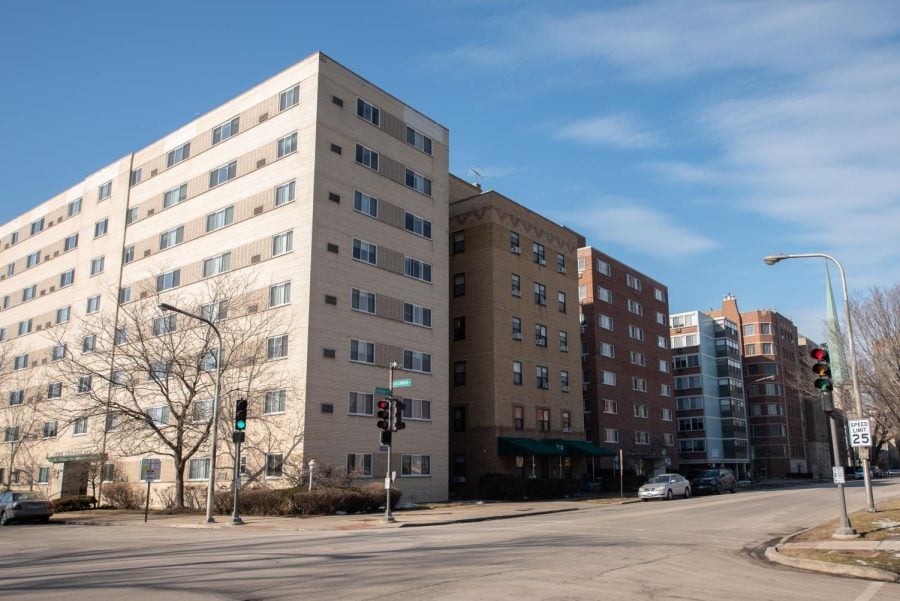Housing and Community Development Committee moves forward with proposed affordable housing ordinances, signaling increased attention from residents
Daily file photo by Katie Chen
City officials have introduced ordinances to address affordable housing concerns after residents called attention to the issue in an October survey.
April 6, 2023
Evanston’s Housing and Community Development Committee voted to move forward with three new housing ordinances that will raise the demolition tax, maintain unit counts in future permits for certain buildings and push back on predatory real estate practices on March 21.
An October 2022 survey asking residents about equity issues in the city found more than 40% of Evanston residents think affordable housing is the city’s most important.
The ordinances were proposed by the Equity and Empowerment Commission to the Housing and Development Committee.
In response to concern shown by residents in the survey, the commission proposed anti-predatory tactics, included in these ordinances, which would prohibit real-estate developers from using coercive tactics to persuade homeowners into selling their property. Those who violate the new ordinance repeatedly within a six-month period will face a fine of $2,000 to $10,000.
Additionally, the committee recommended raising the demolition tax from $16,380 to $20,000 for demolishing single-family residences or multi-unit structures. For multi-units, it suggested a $4,000 increase per unit up to five units. Any building between six and twenty units will pay $7,500 per unit to be demolished. The committee also proposed that the money from these taxes go to the city’s affordable housing fund.
Another proposed ordinance would require all buildings originally built with two-to-four units to remain that size. Units can still be modified, so long as they maintain unit size.
All three proposals advanced to the ordinance-drafting stage with unanimous votes by committee members. While four councilmembers sit on the committee, all nine will have to vote before the three proposals can become ordinances.
Equity and Empowerment Commission Chair Karla Thomas, who helped commission the October survey, said she was not surprised by the results.
“We were expecting (affordable housing) to come up as one of the major things,” Thomas said. “It is a consistent issue for Evanston.”
Richard Koenig, executive director of the Housing Opportunity Development Corporation, said the survey reflects residents’ feelings toward rising housing costs.
“Families are struggling to afford their housing costs, and I think that’s what is reflected there,” Koenig said.
Many survey respondents said a lack of affordable housing in Evanston contributes to inequity in the city. Thomas added that the lack of affordable housing has contributed to the decline of Black residents in Evanston over the past few decades.
Although the proposed ordinances are intended to eventually facilitate affordable housing options in Evanston and preserve existing ones, Gail Schechter, executive director of Housing Opportunities and Maintenance for the Elderly, believes the city can still do more to help.
Though the ordinance will help maintain diversity within Evanston and give low- and middle-income residents more housing options, Schechter hopes both city officials and residents look to find ways to further build and support a diverse community.
“People should be asking themselves, ‘how do we foster a community that’s diverse in all ways?’” Schechter said.
Email: [email protected]
Twitter: @camille_haines
Related Stories:
— City Council tables new 5th Ward affordable housing project
— Rising housing prices threaten to push out low- and middle-income Evanston residents
— City Council creates new license to individualize requirements for shared housing












